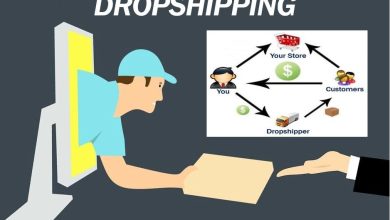How to Effectively Market Your Dropshipping Business Online
How to Effectively Market Your Dropshipping Business Online
How to Effectively Market Your Dropshipping Business Online
Marketing plays a pivotal role in the success of your dropshipping business.
To reach your target audience, drive traffic to your store, and generate sales, implementing effective online marketing strategies is crucial.
In this comprehensive guide, we will explore various techniques to market your dropshipping business online.
Additionally, we will address frequently asked questions (FAQs) to provide you with valuable insights into the world of dropshipping marketing.
Let’s dive in and discover the key strategies for promoting your dropshipping business online.
Understanding Online Marketing for Dropshipping
Before diving into the marketing strategies, it’s important to understand the essence of online marketing for dropshipping.
Online marketing encompasses various techniques and platforms that help you reach and engage with your target audience, drive website traffic, and ultimately convert visitors into customers. It involves utilizing digital channels such as search engines, social media, email marketing, content marketing, and more.
Effective Marketing Strategies for Dropshipping
Search Engine Optimization (SEO)
Implement SEO strategies to improve your website’s visibility on search engine result pages. Conduct keyword research, optimize meta tags, create high-quality content, and build backlinks to attract organic traffic and rank higher in search results.
Social Media Marketing
Leverage social media platforms such as Facebook, Instagram, Twitter, and Pinterest to engage with your target audience. Create compelling content, run targeted ads, collaborate with influencers, and actively participate in relevant communities to build brand awareness and drive traffic to your store.
Email Marketing
Build an email list of interested prospects and customers. Send regular newsletters, personalized product recommendations, exclusive offers, and updates to nurture relationships, encourage repeat purchases, and drive traffic to your store.
Content Marketing
Create valuable and engaging content such as blog posts, videos, infographics, and guides related to your niche. Optimize your content for search engines, share it on social media, and utilize guest blogging opportunities to establish yourself as an authority in your industry and attract organic traffic.
Influencer Marketing
Collaborate with influencers or bloggers who have a strong following in your niche. Partnering with influencers can help increase brand visibility, generate product reviews, and drive targeted traffic to your store through their recommendations and endorsements.
Frequently Asked Questions (FAQs)
How long does it take for marketing efforts to yield results?
The time it takes for marketing efforts to yield results can vary depending on various factors, including your marketing strategy, competition, target audience, and industry. It’s important to note that marketing is an ongoing process, and results may take time. Consistency, monitoring analytics, and adjusting your strategies based on data will help you optimize your marketing efforts and achieve better results over time.
How much should I budget for marketing my dropshipping business?
The marketing budget for your dropshipping business depends on various factors, including your business goals, target audience, and marketing channels. Start with a budget that allows you to test different strategies and channels. As your business grows and you gain more insights into what works best, you can allocate a larger budget to the most effective marketing channels.
How do I measure the success of my marketing campaigns?
To measure the success of your marketing campaigns:
– Set clear goals and Key Performance Indicators (KPIs) such as website traffic, conversion rate, average order value, or customer acquisition cost.
– Utilize analytics tools like Google Analytics to track and analyze






